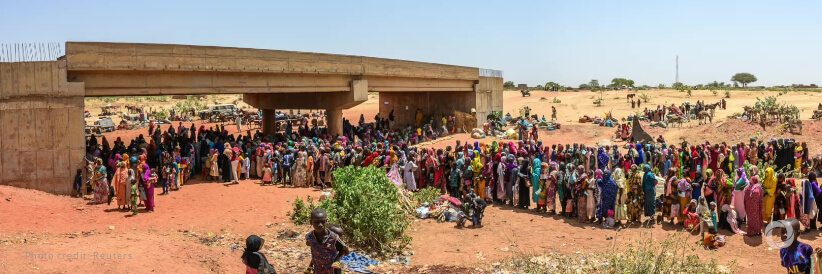The International Rescue Committee (IRC) is deeply concerned by the humanitarian situation in Chad’s eastern regions, which is reaching a breaking point.
Chad has received more than 47,000 refugees from Sudan in the last 30 days, some refugees reaching levels comparable to those at the beginning of the conflict in 2023. Overstretched local services are collapsing under pressure, leaving both refugees and Chadian communities in urgent need of critically limited health care, nutrition, water, and protection services.
Chad already hosts over a million refugees, including over 800,000 arrivals from Sudan since the conflict started more than two years ago.
Health centers along the border with Sudan, in Birak and Mile Extension, in Wadi-Fira province, are overwhelmed, with almost 6,000 people arriving in just two days at the Tiné border crossing in Wadi Fira Province. There are frequent shortages of essential medicines, and no specialized services for mental health or reproductive health are available. As of April, over 100,000 children in Eastern Chad were suffering from severe acute malnutrition, and many refugees walk long distances for care—an insurmountable barrier for pregnant women, the elderly, and people with disabilities.
In response to the growing crisis, the IRC has deployed mobile clinics across Birak and Guereda to deliver free, life-saving health services to refugees and host communities alike. Support includes malnutrition services, support to pregnant women, services for women experiencing gender based violence, and mental health consultations. Although IRC has reached more than 10,000 people with disease prevention and nutrition education, thousands are still facing a dire situation as needs are escalating.
Alain Rusuku, Country Director for the IRC in Chad, said: “The most vulnerable populations are at risk of being left behind, and without urgent action, their suffering will only deepen. As of May 2025, the refugee response plan in Chad, which calls for $806 million to meet the needs of refugees, is only 4.7% funded. While the IRC’s mobile clinics are saving lives today, only increased mobilization of donors and humanitarian actors can prevent a health disaster. A coordinated and sustainable response is necessary, as stability collapses and current funding is not meeting needs.”

